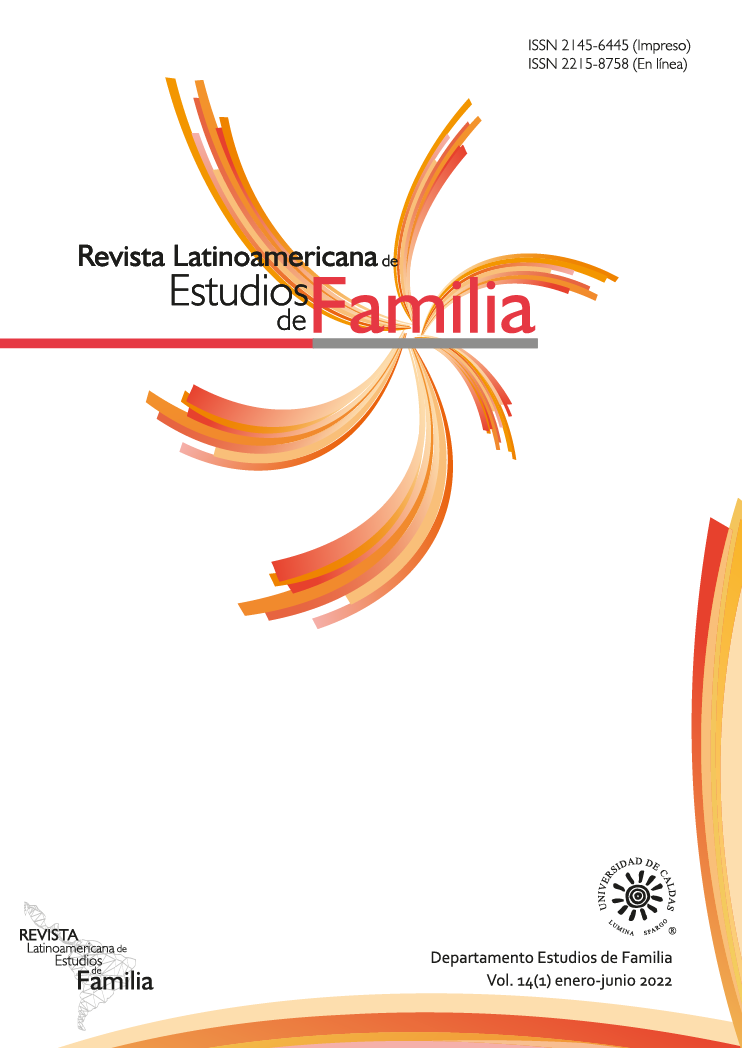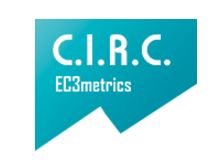Authors
Abstract
Abstract: Objetive. To describe the perceptions associated with the impact of the COVID-19 pandemic on coexistence, living conditions and possible parental burnout with parents living in the Colombian territory. Methodology. A sociodemographic record was applied, an Ad Hoc instrument to establish how the pandemic affected coexistence and the obtaining of resources, and the Latin American version of the 'Parental Burnout Assessment' was applied with a convenience sample of 390 parents. Results. Personal, economic, family relationships, parental burnout and mental health deterioration were evidenced in a significant proportion of participants. Conclusion. Coping with situations derived from COVID-19, added to the associated confinement, led to a significant deterioration in the living conditions of Colombian parents, which should be taken into account for the development of programs aimed at the preventive and therapeutic approach of the identified variables.
Keywords
References
Bahn, K, Cohen, J, van der Meulen Rodgers, Y. (2020). A feminist perspective on COVID‐19 and the value of care work globally. Gender Work Organization, 27, 695– 699. https://doi.org/10.1111/gwao.12459
Boden, M., Zimmerman, L., Azevedo, K. J., Ruzek, J. I., Gala, S., Abdel Magid, H. S., Cohen, N., Walser, R., Mahtani, N. D., Hoggatt, K. J., & McLean, C. P. (2021). Addressing the mental health impact of COVID-19 through population health. Clinical psychology review, 85, 102006. https://doi.org/10.1016/j.cpr.2021.102006
Brown, S. M., Doom, J. R., Lechuga-Peña, S., Watamura, S. E., & Koppels, T. (2020). Stress and parenting during the global COVID-19 pandemic. Child abuse & neglect, 110(Pt 2), 104699. https://doi.org/10.1016/j.chiabu.2020.104699
Comisión Económica para América Latina y el Caribe [CEPAL]. (2020). Informe especial COVID-19. América Latina y el Caribe ante la pandemia del COVID-19. Efectos económicos y sociales (Núm. 1; pp. 1–15). https:// repositorio.cepal.org/bitstream/handle/11362/45337/6/S2000264_es.pdf
Dang, J., King, K., & Inzlicht, M. (2020). Why Are Self-Report and Behavioral Measures Weakly Correlated? Trends in Cognitive Sciences, 24(4), 267-269. https://doi.org/ 10.1016/j.tics.2020.01.007
Díaz de Rada, V. (2012). Ventajas e inconvenientes de la encuesta por Internet. Papers, 97(1), 193-223.
https://core.ac.uk/download/pdf/13313060.pdf
Garcés-Prettel, Miguel, Navarro-Díaz, Luis Ricardo, Jaramillo-Echeverri, Luis Guillermo, & SantoyaMontes, Yanin. (2021). Representaciones sociales de la recepción mediática durante la cuarentena por la COVID-19 en Colombia: entre mensajes y significados. Cadernos de Saúde Pública, 37(2), e00203520.
https://doi.org/10.1590/0102-311x00203520
Gómez-Marín, J. E., González, A., & Rodríguez-Morales, A. J. (2020). Pandemia COVID-19: Reflexiones sobre su impacto para la preparación en el control de enfermedades infecciosas en Colombia. Infectio, 24(3), 141. https://doi.org/10.22354/in.v24i3.854
Griffith A. K. (2020). Parental Burnout and Child Maltreatment During the COVID-19 Pandemic. Journal of family violence, 1–7. Advance online publication. https://doi.org/10.1007/s10896-020-00172-2
Knäuper, B., Carriére, K., Chamandy, M., Xu, Z., Schwarz, N., & Rosen, N. (2016). How aging affects self-reports. European Journal of Ageing 13(2), 185-193. https://doi.org/10.1007/s10433-016-0369-0
Koçak, O., Koçak, Ö. E., & Younis, M. Z. (2021). The Psychological Consequences of COVID-19 Fear and the Moderator Effects of Individuals’ Underlying Illness and Witnessing Infected Friends and Family. International journal of environmental research and public health, 18(4), 1836. https://doi.org/10.3390/ijerph18041836
Londoño-Pérez, C., Gómez-Acosta, A., Marciales, L., Orozco-Gómez, A. Palacios-Espinosa, X., & Santacoloma, A. (2021). La pandemia en Colombia: Revisión sistemática de problemas psicosociales específicos e intervenciones psicológicas recomendadas en periodos pandemia y pospandemia. En O. Infante & J. Grau (Comps.), La Psicología de la Salud en el enfrentamiento de la COVID-19 en América Latina (pp. 102-149). Asociación Latinoamericana de Psicología de la Salud ALAPSA: CEDEM. https://alapsa.net/wp-content/uploads/2021/02/alapsa2021a.pdf
Mikolajczak, M., Brianda, M. E., Avalosse, H., & Roskam, I. (2018). Consequences of parental burnout: Its specific effect on child neglect and violence. Child Abuse and Neglect, 80, 134–145. https://doi.org/10.1016/j.chiabu.2018.03.025
Orellana-Centeno, J. E. (2020). La nueva “normalidad” en México. Revista De Salud Pública (Edición Especial 2020), 87–90. https://doi.org/10.31052/1853.1180.v0.n0.28963
Prime, H., Wade, M., & Browne, D. T. (2020). Risk and resilience in family well-being during the COVID-19 pandemic. American Psychologist, 75(5), 631–643. https://doi.org/10.1037/amp0000660
Rojas, P. A. (2021). Agotamiento Parental en el contexto de COVID-19 y la Cooperación Coparental en madres y padres en Chile (Tesis de maestría). Maestría en Psicología Clínica, Pontificia Universidad Católica de Chile, Chile.
Roskam, I., Brianda, M. E., & Mikolajczak, M. (2018). A Step Forward in the Conceptualization and Measurement of Parental Burnout: The Parental Burnout Assessment (PBA). Frontiers in Psychology, 9, 758. https://doi.org/10.3389/fpsyg.2018.00758
Ruiz-Roso, M. B., de Carvalho Padilha, P., Mantilla-Escalante, D. C., Ulloa, N., Brun, P., AcevedoCorrea, D., Arantes Ferreira Peres, W., Martorell, M., Aires, M. T., de Oliveira Cardoso, L., Carrasco-Marín, F., Paternina-Sierra, K., Rodriguez-Meza, J. E., Montero, P. M., Bernabè, G., Pauletto, A., Taci, X., Visioli, F., & Dávalos, A. (2020). Covid-19 Confinement and Changes of Adolescent’s Dietary Trends in Italy, Spain, Chile, Colombia and Brazil. Nutrients, 12(6), 1807.
https://doi.org/10.3390/nu12061807
Trejos-Herrera, A. M., Vinaccia, S., Bahamón, M. J. (2020). Coronavirus in Colombia: Stigma and quarantine. Journal of Global Health, 10(2), 1-5. https://dx.doi.org/10.7189%2Fjogh.10.020372
Saavedra-Trujillo, C. H. (2020). Consenso colombiano de atención, diagnóstico y manejo de la infección por SARSCOV-2/COVID 19 en establecimientos de atención de la salud. Recomendaciones basadas en consenso de expertos e informadas en la evidencia. Infectio, 24(3), 1–153. https://doi.org/10.22354/in.v24i3.851
Vélez-Alvarez, C., Sanchez-Palacio, N., & Betancurth-Loaiza, D. P. (2020). Cuarentena por COVID-19 en un profesional de la salud: dimensión psicológica, social y familiar. Revista de Salud Pública, 22(2), 1-5. https://doi.org/10.15446/rsap.v22n2.86663

 PDF (Español)
PDF (Español)
 FLIP
FLIP


























